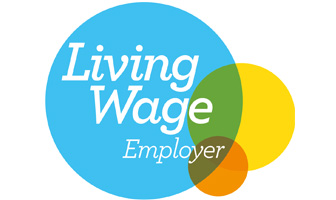Blog
Blog Posts
The Chancellor, Jeremy Hunt, presented his Autumn Statement on 22 November 2023, focussing on five areas: reducing debt, cutting tax, and rewarding hard work, backing British business, building domestic and sustainable energy and delivering a world-class education. From a tax and National Insurance perspective, highlights included the abolition of Class 2 National Insurance and a reduction in the rate of both Class 4 and primary Class 1 National Insurance contributions. The Chancellor also extended the Veterans upper secondary National Insurance threshold. Other changes included freezing of the small business multiplier, maintaining the pension triple lock, and making full expensing for companies permanent.
Key dates
From 6 January 2024, the main rate of primary Class 1 contributions payable by employees is to fall from 12% to 10%. From 6 April 2024, Class 2 National Insurance contributions, payable by the self-employed, are to be abolished and the main rate of Class 4 National Insurance is to be cut from 9% to 8%. This note outlines some of the key Autumn Statement announcements.
National Insurance contributions
The key giveaways were in the form of National Insurance rather than tax.
The National Insurance regime for the self-employed is to be simplified. From April 2024, Class 2 National Insurance contributions are to be abolished. These are flat rate contributions payable by the self-employed which provide entitlement to the state pension. They are payable at a rate of £3.45 per week for 2023/24 where profits exceed the lower profits threshold of £12,570, Self-employed earners whose profits are between the small profits threshold (£6,725 for 2023/24) and the lower profits threshold are treated as having paid Class 2 contributions at a zero rate. Self-employed earners with profits below the small profit's threshold can pay Class 2 contributions voluntarily.
The self-employed also pay Class 4 contributions on their profits. From 6 April 2024, the main Class 4 rate (payable between the lower profit limit of £12,570 and the upper profit limit of £50,270) is to be cut from 9% to 8%.
Following the abolition of Class 2 contributions, self-employed earners with profits of at least £12,570 will continue to receive access to contributory benefits and build up entitlement to the state pension. Where earnings from self-employment are between £6,725 and £12,570, the self-employed earner will not pay National Insurance contributions but will continue to access contributory benefits and build up entitlement to the state pension through a National Insurance credit. Self-employed earners with profits of less than £6,725 per year will continue to be able to make voluntary contributions at the 2023/24 Class 2 rate of £3.45 per week.
Employees also benefit from a reduction in the primary Class 1 rate, payable on earnings between the primary threshold of £12,570 and the upper earnings limit of £50,270. This will fall from 12% to 10% with effect from 6 January 2023. There is no change to the secondary Class 1 rate payable by employers, which remains at 13.8%.
The upper secondary threshold for veterans, which applies to the first year of an armed forces veteran's employment since leaving the armed services is extended for a further year so it will continue to apply for the 2024/25 tax year. Employers only pay Secondary Class 1 contributions to the extent that the veteran's earnings exceed the threshold, set at £967 per week, £4,189 per month and £50,270 per year.
Making Tax Digital
The Government are to amend the design of Making Tax Digital (MTD) to:
- simplify the requirements for taxpayers providing quarterly updates;
- remove the end of period statement;
- exempt some taxpayers, including those without a National Insurance number, from MTD; and
- enable taxpayers within MTD to be represented by more than one agent.
They will keep the decision as to whether landlords and businesses with income below £30,000 should be brought within MTD under review.
National Living Wage
The National Living Wage is to be increased to £11.44 per hour from 1 April 2024 - an increase of 9.8% from its current level of £10.42 per hour. It is currently payable to workers aged 23 and above, but from 1 April 2024 will be payable to workers aged 21 and above.
State pension
The single tier state pension (available to those who reached state pension age on or after 6 April 2016) is to be increased by 8.5% in line with the full triple lock to £221.25 per week from April 2024.
Full expensing
Full expensing provides companies with a 100% first-year allowance for qualifying expenditure on new plant and machinery that would otherwise qualifying for writing down allowances at the main rate of 18%. Unlike the annual investment allowance, there is no limit on the amount of qualifying expenditure that can benefit from full expensing.
Full expensing was originally introduced for qualifying expenditure incurred in the three years to 31 March 2026. It is now to be made permanent. The Government are also to consult on possible changes to simplify the capital allowances legislation.
Pension reforms
The Government have announced a package of pension reforms which will allow individuals to move towards having one pension pot for life.
Research and Development
The research and development tax reliefs are to be reformed from April 2024. For accounting periods starting on or after that date, there will only be two schemes available - the merged research and development expenditure credit scheme and the SME intensive scheme. The threshold for R&D to be considered 'intensive' is to be reduced to 30% from 40%.
Business rates
The small business multiplier is to remain at its current level for 2024/25, but the standard multiplier will rise in line with inflation.
Businesses in the retail, hospitality and leisure industries will continue to benefit from the 75% business rates discount for a further year.
Visual effects industries
The Government are to provide additional tax relief for expenditure on visual effects and have launched a call for evidence to inform policy design.
Alcohol duties
Alcohol duties are to be frozen until 1 August 2024.
Please call 03334559460 if you need help with any of the issues raised in this blog.
Add a comment:
Since Andrew has come on board under the supervision of Mike the transition could not have been smoother. The service and response has been well above expectations. We feel the Payroll services provides an additional backup service provided by Kings Oak Accountancy which takes away yet another task from our busy workload.
Mujib Choudhury, Atlantic Linen
Great to work with, always there to give a hand when needed. Always at the end of the phone when problems need sorting We have been with this Company for many years, would recommend . Running my accounts and PAYE, so this leaves us to concentrate on getting on with our business with no worries.
Sarah – Crossways Tavern
ACCREDITATIONS







